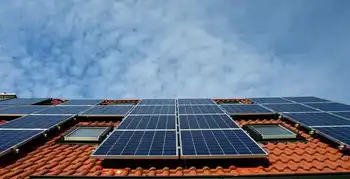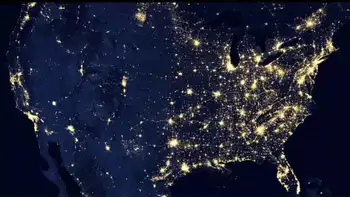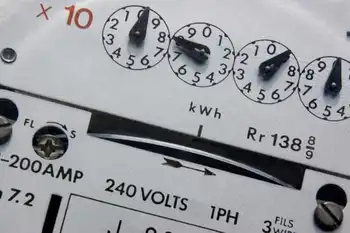Better electric grid is in the works
FLORIDA - The state regulators' staff released its recommendations for hardening Florida's electrical system - with the possibility of creating one able to withstand a Category 3 hurricane.
While anxious customers are worried about keeping their lights on through the next hurricane season, the recommendations made by the staff of the Public Service Commission signal the start of a lengthy process of reports, hearings and possible legislative action that could stretch on for well over a year.
Consumer advocate Mike Twomey called the recommendations "pretty good," although he noted that some of them, like regular tree-trimming cycles, "none of the companies have done what they should have done in the past.
"My biggest fear is that the utilities will try to wheedle extra charges out of their customers to pay for this stuff," Twomey said.
In fact, Florida Power & Light filed papers with the PSC that eventually would allow it to charge customers for the storm-hardening initiatives it says it wants to undertake, including partial costs of burying some lines and new construction able to withstand gusts of up to 150 mph in some places.
FPL spokesman Bill Swank said the latest filing took the utility's proposals announced last month "a step further," resulting in more "dockets, discoveries, hearings."
He said the utility hasn't had an opportunity to "fully evaluate" the PSC staff recommendations and "it would be premature to comment on specifics at this time."
Twomey, the consumer advocate, said, "It's long overdue that the shareholders pay for some of these remedial actions. The customers have picked up every dime of the energy surcharge," which caused homeowner bills to increase at least 19 percent and businesses to see hikes of up to 40 percent.
"And customers have picked up every dime of the storm surcharges," which are still being calculated but are about $1.6 billion for the past two years. "Why should they pick up every dime of these new hardening costs?"
At the moment, FPL shareholders have not been burdened with any of the added costs caused by two years of storm damage and energy hikes. On Friday, directors of the holding company, FPL Group, announced the quarterly dividend will be increased from 35.5 to 37.5 cents per share, which translates to an additional $31.59 million payment annually to shareholders.
The PSC is responding to a flood of complaints from irate customers. Katrina, which was barely a Category 1 hurricane in South Florida, knocked out 75 percent of the lights in Broward and Miami-Dade.
Much of the PSC staff's recommendations support ideas that the utilities have already volunteered as improvements - such as organized three-year cycles for tree trimming, wider latitude for trimming trees in public right-of-ways and using concrete and steel instead of wood for poles carrying major transmission lines.
The staff also suggested utilities collect specific data on how underground lines compare with overhead during storms as part of a lengthy examination on whether more of the grid should be buried.
FPL has offered to pay up to 25 percent of the cost to bury lines, but since that would lead to additional charges for customers, it would require a change in the tariffs, the underpinning for utility bills.
The PSC staff recommended all major transmission lines be inspected within a six-year cycle, noting that its present inspection cycle - which is to sample 10 percent of the transmission lines every four years - wasn't good enough.
Related News

Rooftop Solar Grids
CALGARY - As urban areas expand and the climate crisis intensifies, cities are seeking innovative ways to integrate renewable energy sources into their infrastructure. One such solution gaining traction is the installation of rooftop solar grids. A recent CBC News article highlights the significant impact of these solar systems on urban environments, showcasing their benefits and the challenges they present.
Harnessing Unused Space for Sustainable Energy
Rooftop solar panels are revolutionizing how cities approach energy consumption and environmental sustainability. By utilizing the often-overlooked space on rooftops, these systems provide a practical solution for generating renewable energy in densely populated areas. The CBC…




